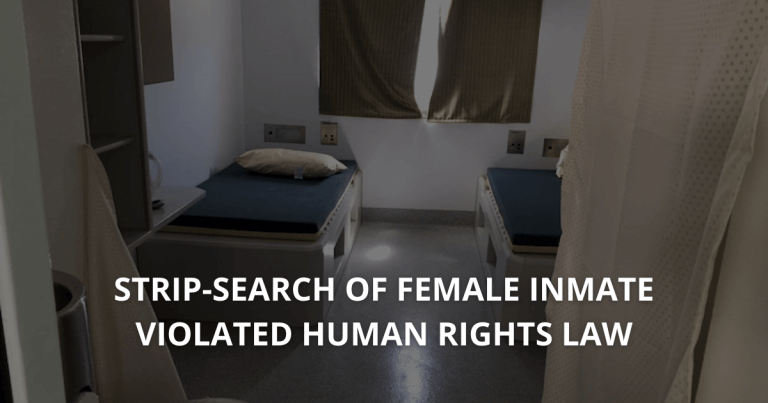O’Brien Solicitor’s Peter O’Brien and our civil lawyer were the instructing solicitors in this case.
SU v Commonwealth of Australia, BS v Commonwealth of Australia
Key Words: New law – residual liberty – criminal detention – immigration detention – Migration Act 1958 (Cth) Sections 189, 196, 233C – Crimes Act 1914 (Cth) Section 3W – asylum seekers – aggravated people smuggling – police misconduct: unlawful arrest – false imprisonment
Facts:
SU and BS were 16 and 14, respectively, on June 30, 2011. Fifteen minutes into that day, the plaintiffs were woken up at the Darwin children’s immigration detention centre, and transported to Sydney. There they were taken to the Surry Hills Police Station and arrested, charged with the crime of aggravated people smuggling. The time of arrest was 10:15. Police then detained SU and BS at Surry Hills Police Station, before being taken to a bail hearing at Central Local Court.
At the time of this incident, the crosshairs of Australia’s immigration debate had turned towards people smugglers. A no-tolerance attitude meant that any adult convicted of people smuggling would spend a mandatory sentence in custody.
The Australian Federal Police (AFP) had used a highly inaccurate wrist x-ray technique to claim that the teenagers were over 18. SU and BS were therefore charged with the adult offence of people smuggling, and – given the perceived seriousness of the crime – were refused bail. The time that bail was refused was 2:30. The pair was then transported to Silverwater Correctional Complex.
At the time, the media decried the obvious, egregious wrongfulness of keeping teenagers in an adult prison. The injustice of holding children in an adult prison, while unethical, turned out to be legally irrelevant to the case at hand.
Case:
The case that O’Brien Solicitors brought on behalf of SU and BS was a claim of false imprisonment. Essentially, the claim stated that the arrest of SU and BS was wrongful, so it followed that their detention by police prior to being refused bail was also wrongful.
(Note that, unless acting maliciously, magistrates have judicial immunity from suit; therefore the claim can only extend up until the magistrate’s refusal of bail).
The alleged crime of aggravated people smuggling is a Commonwealth offence (under the Migration Act 1958 Section 233C), hence the Commonwealth Crimes Act 1914 governs the criminal procedure surrounding that offence. The rules of arrest are set out in Section 3W of the Crimes Act 1914. These rules state that arrest may only be carried out if a summons would not be adequate to ensure the appearance of the person before a court (s3W(1)(b)(i)).
SU and BS were already lawfully detained in immigration detention – there was no risk of them not appearing before a court. A summons obviously would have been adequate; therefore, arresting SU and BS was wrongful.
Unlawful arrest equals unlawful criminal detention, and unlawful criminal detention is usually sufficient to make out a claim of false imprisonment. During the hearing of the false imprisonment claim, the main argument of the Commonwealth was that the plaintiffs hadn’t actually suffered a deprivation of liberty (a necessary element of false imprisonment).
Their argument ran like this: SU and BS were already lawfully detained under s 189 of the Migration Act 1958, therefore they had no liberty left to deprive. The Commonwealth claimed that the lawful immigration detention created an “umbrella of legality”, under which the wrongful criminal detention of SU and BS created no legal liability. This interpretation of the Migration Act essentially claimed that children in detention, if charged with a crime, could be held anywhere that pleased the government.
O’Brien Solicitor’s answer to this objection relied on a previously unrecognised legal concept – residual liberty. Residual liberty states that even though a person may be otherwise lawfully detained, they still enjoy those civil liberties that are not taken away. One’s liberty does not wholly disappear when a person is first detained. In Judge Hamill’s words, the concept of residual liberty is the “rejection of the alternative view, arising from a simple age, that liberty is all or nothing”. New, harsher forms of detention cannot be imposed simply because an individual is already detained: detention within detention must always be justified.
Outcome:
When SU and BS were arrested, the nature of their detention changed from immigration detention into criminal detention. Judge Hamill accepted that this change in the legal nature of their detention constituted a detention within a detention. Prior to their arrest, when SU and BS were in immigration detention only, “one of the residual liberties that the plaintiff[s] enjoyed was the right to be dealt with according to the law”. The unlawful arrest was a clear breach of this right. Moreover, the unlawful nature of the arrest meant that the criminal detention of the plaintiffs was unjustified. Hence, from the time of the arrest (10:15 am) until the refusal of bail (2:30 pm) the plaintiffs did suffer a deprivation of liberty. The false imprisonment claim was made out.
Judge Hamill’s acceptance of the concept of residual liberty was a widening of the common law tort of false imprisonment. O’Brien Solicitors created new law with this case.





